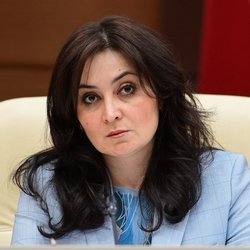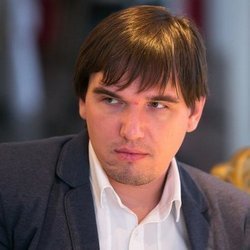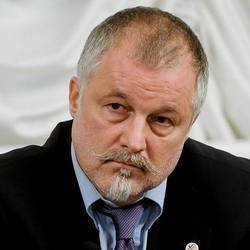‘We are waiting for a plan for gradual exit from Russia’s chief public health doctor’
Experts evaluated Russians’ moods during the coronavirus pandemic
How is Tatarstan planning to exit from the self-isolation regime? What level is the trust in the authorities at in the republic? What scares Russians the most during the pandemic? Is the level of anxiety in Russian society comparable with the crisis in 1998? Answers to these questions were given at a meeting of Volga expert club on 7 May. Read the details in Realnoe Vremya’s report.
Mass events will take a back seat
Vice Prime Minister of Tatarstan Leyla Fazleyeva opened the meeting of Volga expert club on 7 May. She shared the latest information from the anti-coronavirus task force she chairs.

Answering the question of how Tatarstan would lift the self-isolation regime, Leyla Fazleyeva claimed: “Undoubtedly, only by meeting all requirements for sanitary and epidemiological measures that are announced today — it is masks, gloves, social distancing”.
“In general we are waiting for a gradual exit [from the self-isolation regime] from the chief public health doctor of Russia, then an analogous plan will be adopted in the republic. Every region has its own measures to fight the coronavirus infection, but in general I think we all should lift the self-isolation regime step by step. I will also agree with Russia’s consumer protection watchdog Rospotrebnadzor that mass events will have to take a back seat,” the vice premier said.
Tatarstan compares favourably to federal centre
Director of the Centre for Analytic Research and Developments Aleksey Konnov paid special attention to Tatarstan in his speech. He shared his information:

Aleksey Konnov also noted that during the pandemic population is mainly scared of uncertainty. So he thinks that in Tatarstan there is more certainty than in neighbouring regions and in Russia in general.
“I am not sure how correct I will be, but by our estimate, the republic is comparing favourably to the federal centre and neighbours with clear steps and messages to society,” the speaker concluded.
“The situation in the world is the main source of anxiety”
During the meeting, the experts shared the latest statistics reflecting the Russians’ moods during the pandemic. So Director on Work with Public Authority Agencies of the All-Russian Public Opinion Research Centre Kirill Rodin delivered a detailed report.

At the same time, the data of the public opinion research centre shows that the fight against the pandemic in the country is evaluated by the majority as “rather effective”.
40% of the respondents claimed when evaluating the change of the working regime during the pandemic that they “worked as they did”. 12% have switched to telecommuting, 11% are partially working from home and office, 9% aren’t working because of self-isolation without pay, 3% say that they have been laid off.
Social inequality leads in Russians' rating of fears
The public opinion research centre made up a rating of Russians’ fears after asking them to assess the probability of appearance of some problems in their life.
“Growth of fear of social inequality and inequality between people ranks first. The development of the epidemic of infectious diseases was second. A fall in incomes was third. Then it is a rise in prices for goods and services, then an outrage of crime, family conflicts are the last,” Kirill Rodin claimed.
President of the Russian Association of Political Consultants Aleksey Kurtov, in turn, notes growth of alarming moods in society:

Kurtov added that the experts evaluated the current level of anxiety in Russian society as 5,5 points (out of 10). To compare, the mark was above 5 during the crisis in 1998.
“In other words, now the anxiety is higher than even during the tough crisis in 1998 when we lost money and went 20 years back,” the expert concludes.